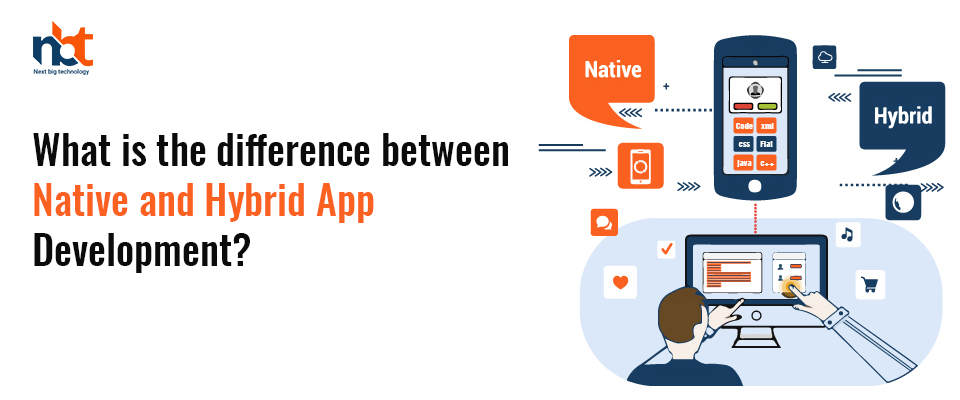Smartphones in the modern era have become an instrument of utility, as they offer multiple benefits like instant communication through e-mails and social networking, entertainment, web surfing, GPS, and various other productivity apps. While deciding on a mobile application development process, users must know whether to choose a native app or a hybrid mobile app development.
Mobile applications have become the most essential factor in innovation. With an expanding market of smartphones, many organizations are now adopting ways to incorporate mobile apps and boost their market outreach.
Hybrid vs Native app – the basic difference
Native apps are developed based on programming language and make it compatible only with the corresponding platform. Android apps are developed mainly in Java, whereas iOS apps are developed in Apple’s Swift. On the other hand, Hybrid apps services are developed using web technologies like HTML5, JavaScript, and CSS in combination with native elements. It is a native component provided by Android and iOS to load web content.
Also read: How to Hire Professional Hybrid App Developers? A Complete Guide!
The advantages and disadvantages of Hybrid vs Native app
Both the hybrid and the native approach to mobile app development company have their own pros and cons which must be considered while entering the mobile market.
- Cost
Cost influences how companies develop their apps. The hybrid approach can be built for any platform from a single code base. Also, they are much cheaper to build than native apps.
- Time
A hybrid app is faster than a native app in terms of development. They are developed with web technologies like HTML5, JavaScript, and CSS, as they are much faster than platform-specific programming languages. Top app development companies in India decide to build a native app that often ends up launching on one platform and alienates the users of other platforms.
- Maintenance
Today, users have very high expectations for mobile apps. Developing native apps offers multiple codebases to maintain. Due to this, Android developers are typically not fluent in iOS development and vice versa. Also, companies that decide to develop a native app should be ready to keep at least twice as many developers on their payroll as companies that choose the hybrid approach.
- Performance
Native apps are built with platform-specific programming languages. It enables the Hybrid apps developers to fully optimize them for maximum performance. Hybrid apps necessarily add an extra layer between the target platform and the source code, results in at least some performance loss.
- User Experience
Most users do not care about the technology that powers the used applications. They only care about the user’s experience. Also, an application must look and behave in a consistent way with the platform and support common gestures and platform-specific features. In addition, frameworks for mobile hybrid apps like React Native, Xamarin, Ionic, or PhoneGap are simplifying the creation of native-like user experiences.
Also read: What is the Cost to Develop a Hybrid vs. Native Mobile App?
Conclusion
Hybrid apps are perfect for developing minimum viable products with limited budgets and timeframes. While native apps are perfect for products that require flawless performance and custom features. The decision to choose a hybrid or native is based on the priority and goals of the organization.
Thanks for reading our post “What is the difference between Native and Hybrid App Development?”, please connect with us for any further inquiry. We are Next Big Technology, a leading web & Mobile Application Development Company. We build high-quality applications to full fill all your business needs.













